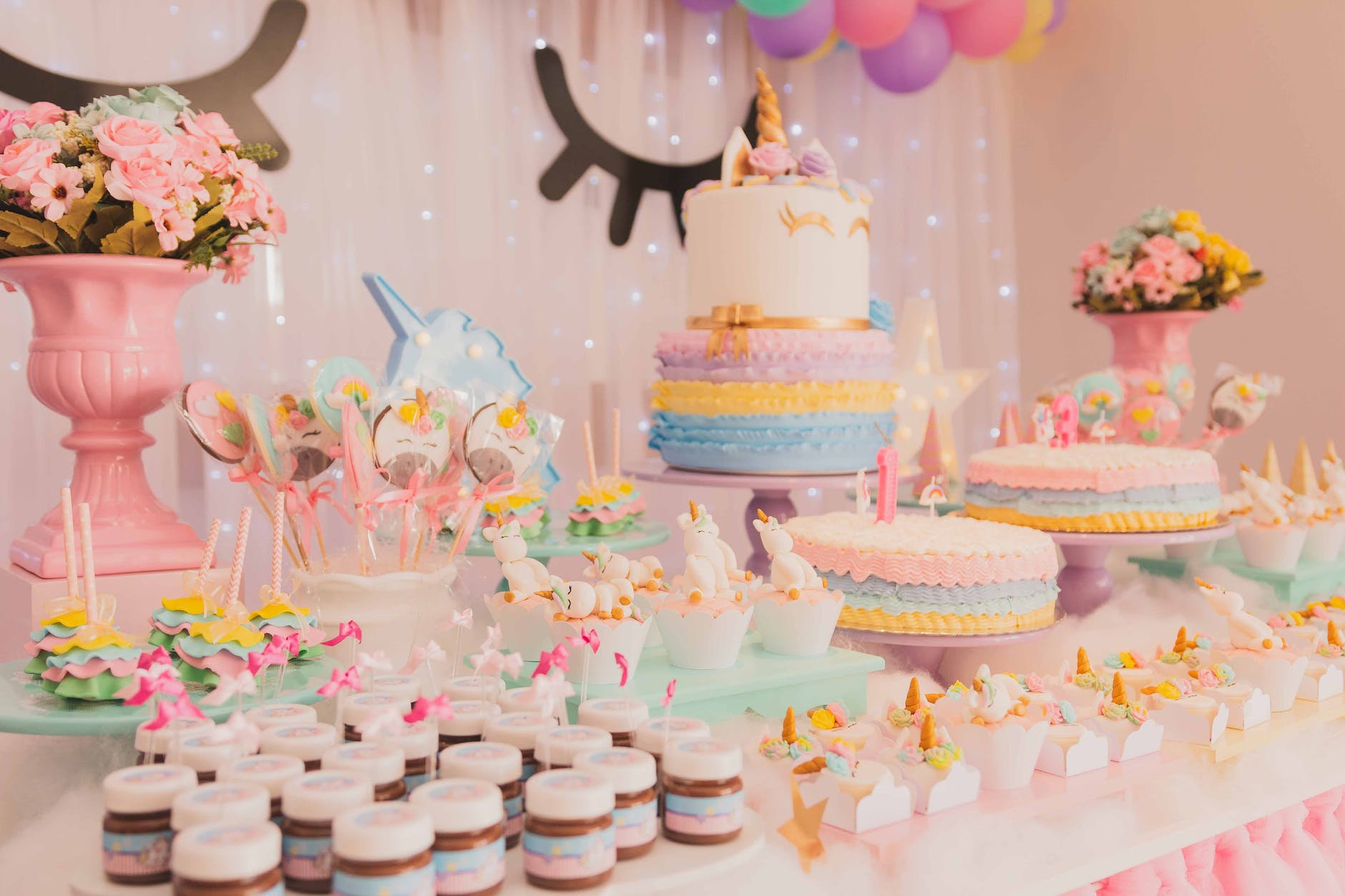
Birthday Cake
The history of birthday cakes is as rich and varied as the cakes themselves. The tradition of celebrating birthdays with cakes can be traced back to ancient Rome, where honey-sweetened cakes with candles were believed to bring good luck to the birthday celebrant. Medieval birthday cakes were made with spices to represent good wishes for health and prosperity, while cakes in the 17th century became more elaborate and multi-tiered, often featuring intricate decorations and candles to make a wish.
Today, there are countless types of birthday cakes to choose from, ranging from classic vanilla and chocolate to unique flavours like red velvet and lemon meringue. Cheesecake is also a popular choice for its delicious and versatile taste.
When it comes to decorating a birthday cake, there are endless possibilities. Edible decorations like sprinkles or fondant cutouts in the shape of letters or numbers can add a festive touch. Flowers, either fresh or artificial, can also bring an elegant element to any cake. For those who are searching for high-quality birthday cakes, click the link: https://whyzee.com.sg/product-category/cakes/birthday-cakes/.
Making a birthday cake can seem daunting, but with the right ingredients and steps, anyone can make an amazing homemade cake. Mixing the batter, pouring it into pans, and baking until done is only the beginning. Once the cake has cooled and been frosted, the fun of decorating can begin.
Eating and sharing a birthday cake has many benefits beyond just satisfying a sweet tooth. It helps create lasting memories, enhances social interaction, and provides a sense of celebration and happiness.
In ancient Rome, birthday cakes were believed to bring good luck to the celebrant. These cakes were made with honey and topped with candles. The Romans believed that by eating the cake, they could bring good luck to themselves and their loved ones.
During medieval times, birthday cakes were made with spices like nutmeg, cinnamon, ginger, cloves, and allspice. These ingredients were believed to represent good wishes for the recipient’s health and prosperity. Sugar or marzipan figures representing the guest of honour’s age or station in life, such as a king or queen, were often added as decorations.
By the 17th century, birthday cakes had become much more elaborate. Multi-tiered creations featuring intricate decorations such as flowers or animals made out of icing or marzipan were popular. Candles were also placed on top of these grandiose creations, allowing guests to make a wish upon blowing them out.
The 19th century saw an evolution in baking techniques, resulting in more colourful cakes topped with brightly coloured icings made from egg whites. Today, there are countless types of birthday cakes to choose from, ranging from classic vanilla and chocolate to unique flavours like red velvet and lemon meringue. Cheesecake is also a popular choice for its delicious and versatile taste.
When it comes to decorating a birthday cake, there are endless possibilities. Edible decorations like sprinkles or fondant cutouts in the shape of letters or numbers can add a festive touch. Flowers, either fresh or artificial, can also bring an elegant element to any cake.
Making a birthday cake can seem daunting, but with the right ingredients and steps, anyone can make an amazing homemade cake. Mixing the batter, pouring it into pans, and baking until done is only the beginning. Once the cake has cooled and been frosted, the fun of decorating can begin. Consider using edible decorations like sprinkles or fondant cutouts in the shape of letters or numbers or adding colourful streamers made from strips of crepe paper.
Eating and sharing a birthday cake has many benefits beyond just satisfying a sweet tooth. It helps create lasting memories, enhances social interaction, and provides a sense of celebration and happiness. Birthdays are an excellent opportunity for family and friends to get together, which can help strengthen bonds between people of different generations or relationships.






